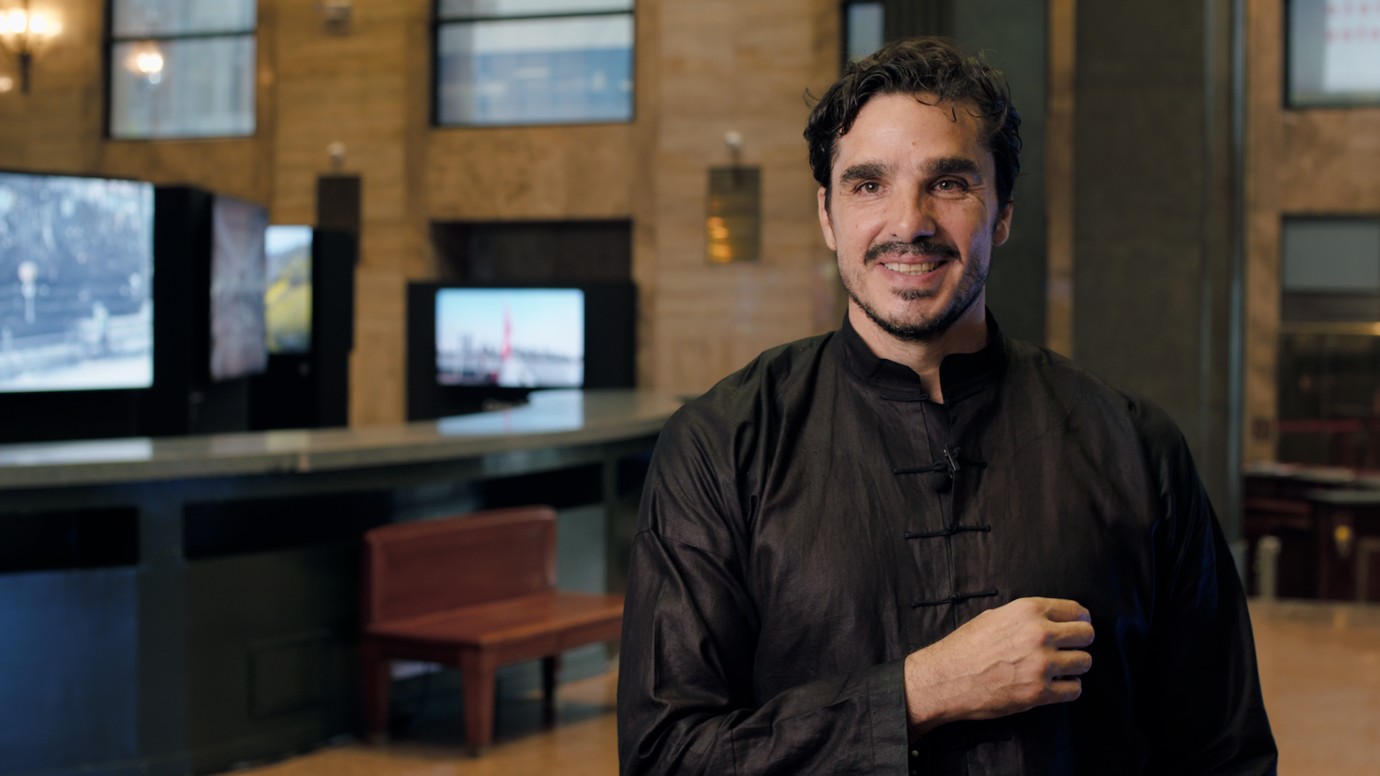Luis Cuenca Castro: Open doors of friendship through filmmaking
At the heart of the Iberian Peninsula, Madrid, the vibrant and bustling capital of Spain, serves as a crossroads of culture and creativity. Amid the heat of summer, Our China Stories met with Spanish filmmaker Luis Cuenca Castro at the Cervantes Institute, where his temporary exhibition "China 354" is currently on display. Although born in Madrid, Castro now calls China home, a country he has also described as a goldmine for filmmaking. Through his work, he aims to tell authentic stories about China and its people, bridging dialogue between China and the rest of the world.

Luis Cuenca Castro (Photo/Patrick Shead-Simmonds)
Castro admits that his decision to build a filmmaking career in China was an unexpected one. "I first came to China in 2013 and honestly I didn't expect to stay that long," he explained. "But something about the place just pulled me. China has so many layers, contradictions and stories waiting to be told, especially in Beijing." For Castro, the cinematic power of the country lies in the unpredictability and emotional depth. "Even everyday life is filled with moments that are both intimate and epic."
In 2019, Castro launched "China 354," a visual chronicle of contemporary China that spans a wide range of topics and regions. Castro shared that the title refers to the Chinese lunar calendar, which has a different number of days every year. When he began the project in 2019, that year had 354 days, resulting in 354 one-minute films that offer glimpses into daily life across China.
At the Cervantes Institute, the exhibition unfolds across 24 synchronized screens, each titled under a Chinese solar term (jie qi), "Each shows a continuous sequence of one-minute films," Castro explained. "It is a way of capturing the rhythm of time, the passing of seasons, and the diversity of the human experience." Themes such as identity, memory, and transformation are central to the work's poetic structure.
Castro hopes these short films encourage audiences to slow down and observe. "There is so much noise in how China is usually portrayed in politics and media headlines," he said, "I wanted to offer something quieter and more human." "China 354" has been warmly received in China and many audiences told Castro they could see their lives in the films, which he finds very meaningful.
By bringing "China 354" to Spain, Castro hopes to show a personal and relatable perspective on China. "As someone from Madrid, it is important for me to build a bridge between these two cultures during the 50th anniversary of diplomatic relations between Spain and China." He hopes to encourage empathy and mutual understanding through his films.
Castro has also shot longer films on Chinese life. "White Joy" documents a funeral procession he witnessed in southwest China's Guizhou Province, which was full of music, color, and community. Through the film, he explores how different cultures deal with death and how mourning can be a celebration of life.
"King Bull" delves into the tradition of bull fighting in Guizhou, where two bulls face off without human interference. It's completely different from Spanish bullfighting, Castro shared. It is not a violent spectacle, but a community event. The film reflects on how similar traditions take on different meanings across cultures, touching on themes of strength, symbolism, and tradition.
Currently, Castro is working on a feature-length documentary on the longest train journey in the world from Yiwu, in east China's Zhejiang Province to Madrid. Castro compares it to a modern version of the ancient Silk Road, a deeply symbolic journey that reflects on what it means to live between these two worlds, exploring globalization, identity and human stories that come to take place on the train journey. "I want to understand what kind of future we are building through these new connections and what it means to belong in world that is constantly in motion," said Castro.
Looking back at his time in China, Castro remarked on the incredible pace of change. "But what hasn't changed," he added, "is the importance of family, the strength of community, and the deep respect for tradition." He has also witnessed a growing openness and curiosity among young generations in China about the world, and their desires to connect beyond borders.
Time and time again, Castro was welcomed by the warmth and generosity of the Chinese people. He recalled fondly, when shooting in a small village in southwest China's Yunnan Province, he arrived without making any plans, only to be invited by a local family to have dinner together and spend the night. Together they shared food, stories, and laughter.
The goal of Castro's films has never been to explain China, but to explore something more profound and universal – moments of emotional connection. He believes stories, especially through film, can open doors and build lasting bridges of friendship between people, countries, and cultures.

 Scan the QR Code
Scan the QR Code